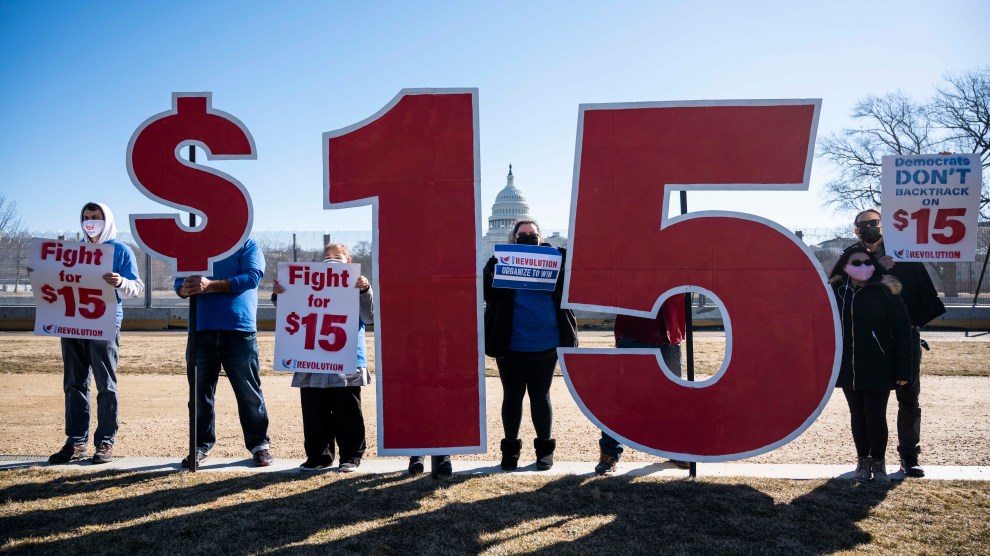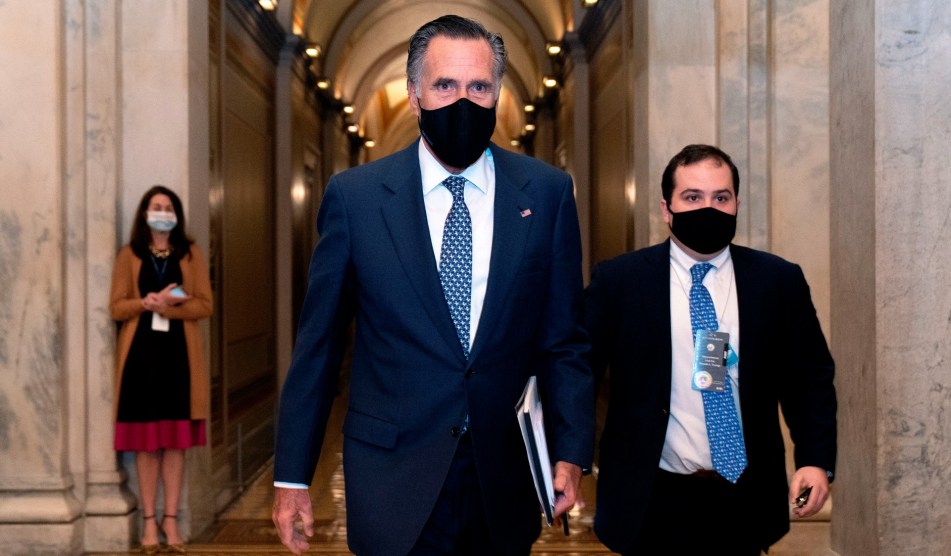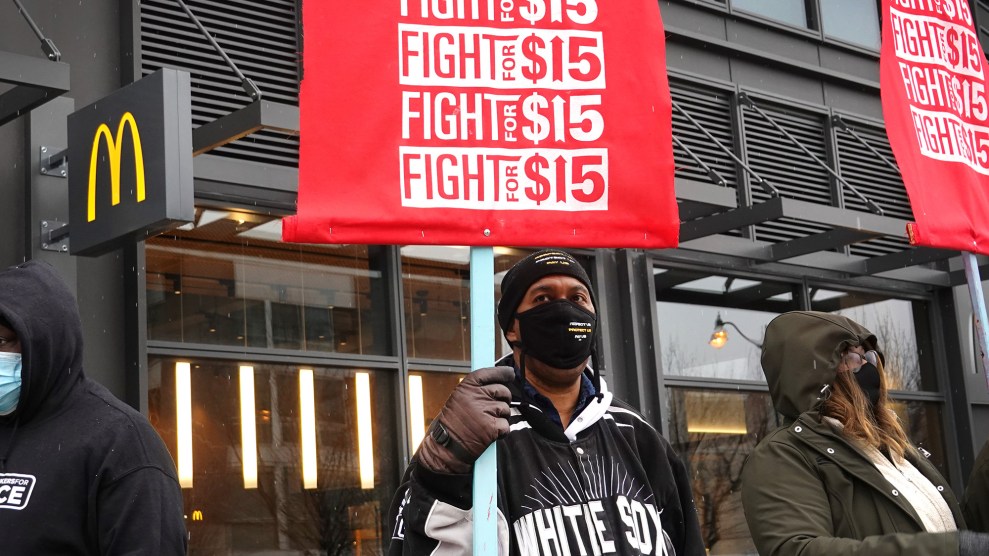
Bill Clark/Congressional Quarterly/Zuma
In a major blow to Democrats’ plan to raise the federal minimum wage to $15 per hour, the Senate parliamentarian ruled on Thursday that the proposed increaser can’t be passed through reconciliation as part of President Joe Biden’s $1.9 trillion coronavirus relief bill.
Democrats had hoped to include the minimum wage increase in a stimulus bill that could pass the Senate with a simple majority through a process called reconciliation, rather than with the 60 votes normally needed. The decision by the parliamentarian, Elizabeth MacDonough, means that $15 hourly wage requirement cannot stay in the relief bill as written.
It’s possible for Vice President Kamala Harris, as president of the Senate, to overrule the parliamentarian, but the White House—along with the crucial moderate Democrat Sen. Joe Manchin (W.Va.)—refuses to pursue that option. The next steps are unclear: Senate Majority Leader Chuck Schumer (D-NY) will either have to omit the wage increase from the bill, or try to find a way to rewrite it to meet Senate’s parliamentary rules.
67% of Americans support raising minimum wage to $15 hour but it can be filibustered by 41 GOP senators representing just 21% of country. This is why we need to abolish it
— Ari Berman (@AriBerman) February 26, 2021
MacDonough’s decision comes as a major, if expected, blow to the national push for a $15 minimum wage. In a statement shortly after the ruling, the group Fight for $15 said in a statement, “We will not be deterred by an archaic Senate process that throughout history has been used to delay or deny progress for Black and brown communities while allowing multitrillion-dollar tax cuts for corporations.”
“Voters don’t want to hear excuses about process, procedures or parliamentarians,” they continued. “We want a job that pays us a living wage. We want dignity at work. We want and we need $15.”

















